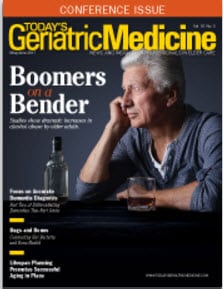Guest Blogger and long-time Council friend, Bob W. presents Part 10 of a series dealing with Alcoholism and Addiction from a Mystical, Mythological Perspective, reflecting Bob’s scholarly work as a Ph.D. in mythological studies.
In the great J.R. R. Tolkien story of The Lord of the Rings, the Hobbit, Frodo Baggins, is given the task of destroying the One Ring that brings enormous, invincible power to anyone who wears it. A Dark Lord, Sauron, who originally forged it, is trying to re-capture it to complete his takeover of the known world, called Middle Earth in the story. It is in the Council of Elrond where it is decided that the One Ring must be destroyed by throwing it into the fires of Mount Doom and it is Frodo who accepts the mission. The other attendees of the Council, princes of different parts of Middle Earth, form a Fellowship pledging themselves to protect Frodo in his mission. The central story of Tolkien’s trilogy, then, is the working of the Fellowship of the Ring, through enormous struggles, to facilitate Frodo’s completion of this task.
The story can easily be read as the One Ring being the curse of alcoholism and addiction. While there is no one sufferer of such a disease in the story, Frodo and the Fellowship supporting him pursue a series of journeys very much like our own in the pursuit of Sobriety. They encounter incredible hardships and battles trying to gain the ultimate advantage over the evil of the disease.
The powers of the One Ring are strong and at various times they almost tempt Frodo and members of the Fellowship to fall under its spell and relinquish the Journey. As the story builds, its power to corrupt builds as well and the agony of the Journey resonates more and more loudly with the ideas of addiction recovery. But Frodo, with the support of the Fellowship, as our Fellowship supports us, is successful and peace returns to Middle Earth, the ending conveying a wonderful sense of serenity for all, a sense of serenity not unlike the feelings that surround us when we begin to bask in the glow of Recovery.
The closing scenes of the final episode in the Trilogy convey the sense of serenity and joy that has returned to Middle Earth…echoing the serenity, strength, and hope that can overwhelm us as we feel that glow…
 is the cover story in the May/June 2017 issue of Today’s Geriatric Medicine magazine that reports on the dramatic increases in harmful alcohol use by older adults. Aimed at medical providers, the article details the alarming increase in both binge drinking and alcohol use disorders (AUD) among adults aged 65 and older. Doctors are urged to screen and identify unhealthy alcohol use by their older patients and to discuss the risks of continued use and the options available to stop drinking for those with the problem.
is the cover story in the May/June 2017 issue of Today’s Geriatric Medicine magazine that reports on the dramatic increases in harmful alcohol use by older adults. Aimed at medical providers, the article details the alarming increase in both binge drinking and alcohol use disorders (AUD) among adults aged 65 and older. Doctors are urged to screen and identify unhealthy alcohol use by their older patients and to discuss the risks of continued use and the options available to stop drinking for those with the problem.
